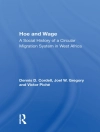Explores state formation, social fabrics and cultural mores of medieval India from 1200-1800.
The states of medieval India operated under a ruling class that was largely Muslim, colouring our understanding of the history of the period. Increased availability of Persian chronicles, emergence of a class of professional historians and progressive forces emanating from the anti-colonial movement have led to new approaches to the period.
Situating Medieval India covers more than 6 centuries, from the Delhi Sultanate to the arrival of Europeans. Topics covered include approaches to exercise of sovereign power in medieval states and the social identity of government officers, Dulla Bhatti’s revolt against the Mughal State, modes of resistance in the state of Punjab, and religious diversity in Agra. The author also examines scientific and technical innovations, and the artworks of Mushtaqi, Jahangir and Bhandari.
The book opens up medieval India in all its complexity and richness.
قائمة المحتويات
Acknowledgements
Introduction
1. Appointment of Government Officers in Medieval States: The Concerns of Nizam ul-Mulk Tusi and Ziauddin Barani
2. Dynastic Change in Northern India: Divergent Approaches to the Exercise of Sovereign Power
3. Rulers, Zamindars and Sufis: Probing a Triangular Model of State Formation
4. Administrative Consolidation in the Delhi Sultanate: Evidence from a Collection of Letters
5. Scientific Temperament and Technical Innovations in North India: From the Eleventh to the Fifteenth Century
6. Revolt of Dulla Bhatti against the Mughal State: A Study of Oral Tradition and Modern Cultural Forms
7. Travelling Across Northwestern India: The State of Rivers, Bridges and Boats during the Mughal Age
8. Political Culture in the Mughal Empire: An Idealistic Vision and the Ground Reality
9. A Central Asian Visitor at the Mughal Court: Meetings of Mutribi Samarqandi with Emperor Jahangir
10. Pictures of Amazement in Medieval India: Looking into the Works of Mushtaqi, Jahangir and Bhandari
11. Historical Dimensions of Islam in South Asia: Modern Writings on Polity, Religion and Culture
12. Cultural Ethos of Medieval Panjab: The Pathways of Resistance to the Structures of Dominance
13. Caste, Creed and Custom: North Indian Society Towards the Close of the Eighteenth Century
14 . Celebration of Religious Diversity in Agra: Reading the Observations of Nazir Akbarabadi
Index
عن المؤلف
SURINDER SINGH is the author of books titled The Making of Medieval Panjab: Politics, Society and Culture c.1000-c.1500 and Medieval Panjab in Transition: Authority, Resistance and Spirituality c.1500-c.1700. He has co-edited books such as Sufism in Punjab and Popular Literature and Pre-Modern Societies in South Asia.












